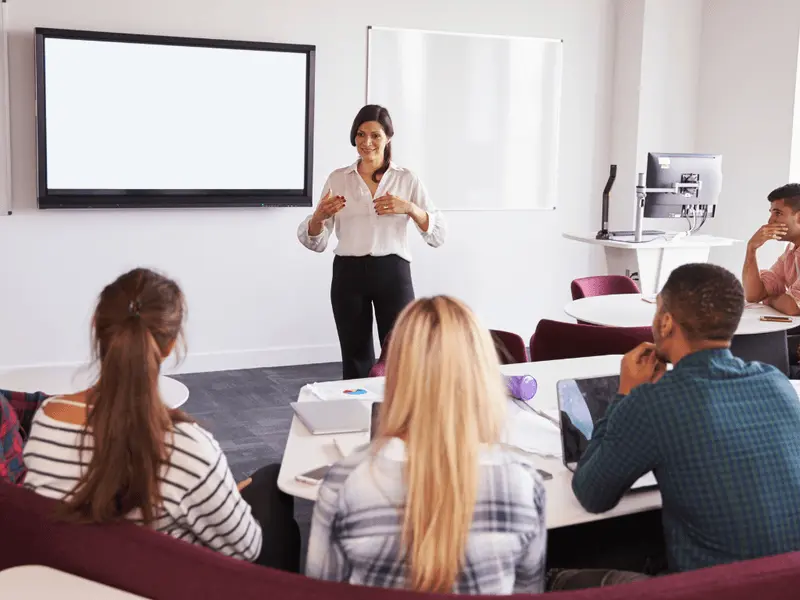Our Principles of Approaching Real-Life Goals
Needs Analysis:
- Trainees are planned the necessary steps to fill the 'gap' between where they are according to their CEFR descriptor and where they need to be to achieve their course objectives.
Materials
- By using unique materials at each level, trainees are helped to improve their language skills.
- Materials that present the language in context are used.
- The use of certain authentic materials outside of the classroom is encouraged.
Our Principles in Practice
Creating Effective Conditions:
- A professional relationship is established with each student and a supportive environment is provided.
Student Focus:
- When following the course schedule, there is a flexible response to topics that interest students, rather than rigid adherence to a set schedule.
Retrofit:
- Trainees are involved in activities that encourage them to practice communicative language strategies.
Variety and Balance:
- A variety of activities are used that take into account different learning styles.
Competencies:
- Trainees are sensitized to the sociocultural/linguistic aspects of language use. (e.g., level of formality and politeness, wording of specific situations).
Student development:
- Trainees are given opportunities to take on personally meaningful tasks or projects.
Our Principles in Evaluation
Constructive Compliance:
- A consistent link is established between the activities used for teaching and the standards used for assessment.
Transparent Criteria:
- Information is given on both communicative achievement and language quality based on the assessment of performance on communicative tasks with CEFR descriptors.
Design:
- Our tests assess communicative activities (e.g., listening, reading, oral and written production, and interaction) related to production and interaction.
Our Principles of Assessment in Learning
Assessment of Learning:
- "Doable" checklists are used to assess progress at specific milestones (e.g., end of unit, end of semester), including self-assessment and/or peer assessment.
Reporting of Results:
- The trainee's progress and results are reported systematically in accordance with the CEFR levels.
- In addition to the notes, trainees are provided with interpretations of strategies, language awareness, multilingualism, and intercultural competence.
Reflection of Results:
- By identifying the reasons for failure and limited success, the methodology is reviewed and the findings are used in the progress of the trainees.



